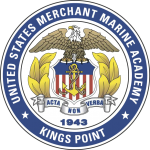News
No Contest: China’s vast, ever-growing maritime capacity
Last month, volunteers from across the maritime community visited Capitol Hill to discuss the national security imperative of a strong U.S. commercial fleet.
The annual Congressional “Sail In” attracted over a hundred participants, and the U.S. Merchant Marine Academy (USMMA) Alumni Association and Foundation (AAF) was pleased to be part of this event.
During meetings with Members of Congress and key staffers held throughout the day, policymakers consistently remarked on the startling rise of China’s merchant fleet and the equally alarming decline of America’s. Most jarring is the fact that the U.S. is far, far behind in every category of essential vessels: bulk, container, oil tanker, and cargo. This graphic, shared with you courtesy of the American Maritime Congress, sums up the grim situation succinctly.
Without a strong and sustainable fully-crewed merchant fleet, America will be unable to prevail in a protracted conflict with China. By design, the U.S. Navy does not move troops, supplies, fuel, and weapons. This is the job of U.S. Merchant Marine. And while sufficient numbers of ships are critically important, we cannot overlook the gaping human capital shortage.
The USMMA plays a vital role in maintaining the maritime strength and security of the nation. Its graduates make up more than 80% of the U.S. Navy Strategic Sealift Officer force. Every single one of our graduates are obligated to serve the nation for eight years, and every graduate earns an unlimited merchant marine officer’s license as a third mate or third assistant engineer. They stand ready, willing – and as a result of their Sea Year training aboard commercial vessels – able to serve the moment they
graduate.
